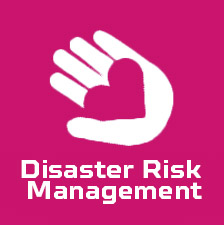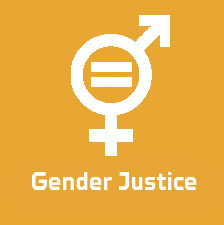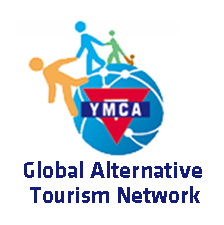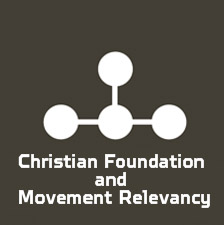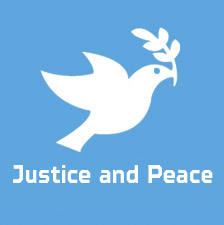What We Do
YLSS practice in Taiwan
Last Updated (Tuesday, 30 November 1999 08:00)
YLSS, the Youth-Led Solution Summit is an initiative of the World YMCA, in collaboration with YMCA of the USA and the YMCA of San Francisco, the United Nations, academia and external partners to empower young people and drive social innovation to advance the UN’s Sustainable Development Goals. The vison of the Summits is to amplify youth solutions that positively impact local and global sustainability, the development of just and equitable communities, and the well-being of all people.
There’re two solution teams organized by Taiwan YMCA. From the last week of January to the third week of February is our winter vacation, both of Taiwan teams have planned through some kids’ activities of the winter camp to promote our solutions.
First solution team which related to the topic: Waste Management, was mainly organized by Tainan YMCA. It was held as a workshop through the Caring Community School Project. In Taiwan, the school education usually teaches some basic concepts of recycling. However, the concept of “Clothing Recycling” is rarely talked about. After recycling clothes, where do they go? In addition to the disadvantaged groups, it is to enter the burning factory, but because of this, it also causes the combustion air pollution, the pollution of the influx of the pigment into the water source, and also cause the waste pollution. In order to reduce pollution, we created "Create a Second Life for Second-hand Clothes." In addition to guiding resource management, the use of the workshop facilitates the use of teaching hand-made, so that children have their own unique coin purse.
“I think this activity of making coin purses from second-hand clothes is very interesting. It only spends less than three hours to make the life of secondhand clothes and contribute to the environment. The idea of a friendly environment is communicated to the children and to ourselves, seeing their happy smile after completing the work is my greatest achievement. And from now on I will pass on the idea of reducing waste and regenerating life to more people, working hard to make a contribution to the planet, and building a greener future.” – feedback by a youth volunteer
GATN: Responsible and Sustainable Tourism Mini Workshop
Last Updated (Wednesday, 24 February 2021 23:29)
The GATN managers around the Asia Pacific region met on 22nd February 2021 for a short but informative sharing on "GATN as a Social Enterprise" by Mr. Chris Wong, a lecturer in the Hong Kong Polytechnic University.
GATN is promoting alternative and sustainable travel/tourism as a response to the negative impacts of mass tourism and climate change. At the same time, GATN is also committed to help local hosting communities become the subjects of tourism and benefit appropriately from responsible and sustainable travel.
This webinar is part of a series of trainings to equip GATN managers in local YMCAs to organise and promote social enterprise as a model for responsible, sustainable and resilient tourism. Hopefully this can help local hosting communities become less vulnerable to changes/crisis such as a pandemic and political disputes.
So, what is a "social enterprise"?
● It is a community-based economy
● Providing services or goods to persons or communities whose needs were not met by private companies or government.
● Model: Sharing economy (became a phenomenon in East Asia when many social-economic problems, e.g., income inequality, poverty arose after the crises in the 1990's)
● All value goes back to the community
Chris shared the 5-key pillar for sustainable tourism, which are:
● Tourism Policy and Governance - What we should include in sustainable tourism development
■ What are the existing government initiatives?
■ Is there any support from the gov. to social enterprise?
● Trade, Investment, Data, and Competitiveness - Understanding your local business environment
■ What are niche markets we can aim for to sustain the business?
● Employment, Decent Work and Capacity Building - Employment
■ How to incorporate people who are out of a job and include them in the workforce?
● Poverty reduction and social inclusion
■ How to prevent over-tourism?
■ How can the local community generate sustainable income?
● Sustainability of Natural and Cultural Environment
■ How does tourism work in hand with sustaining the natural and cultural environment?
Chris also touched that sustainable tourism encompasses the following SDGs (Sustainable Development Goals):
● SDG 8 - Decent Work and Economic Growth
● SDG 12 - Responsible Consumption and Production
● SDG 14 - Life Below Water
We also learned about how social enterprises work worldwide and heard encouraging models from South Korea, Hong Kong, Cambodia, India, and Peru.
There are 5 types of social enterprise models to follow:
1. Trading Non-Profit Organizations (NPO)
- NPOs looking for other sources of income or seeking to achieve financial sustainability through the delivery of social services (other than work integration)
2. Work Integration Social Enterprise (WISE)
- Provision of (stable or temporary) job opportunities with training and/or employment services
3. Non-profit cooperative
- Collective self-employment and innovative responses to unmet needs based on cooperative tradition
4. Non-Profit and For-Profit Organizations NPO-FPO partnership
- Involvement of private companies (or company foundations) to support NPOs or joint initiatives with a social mission
5. Community Development Enterprise
- Multi-stakeholder partnerships (NPO, FPO and public) promoting participatory local development
When asked which model works best for beginner YMCAs? It seems that model 5 was the best where social impact, innovative solutions, and sustainable business models connect.
Read more: GATN: Responsible and Sustainable Tourism Mini Workshop
I want to tell you …
Last Updated (Friday, 26 February 2021 13:15)
I want to tell you…
Myanmar has been on the news all around the world. Now I want to tell you "What is really happening in Myanmar".
The military detained most of the democratically elected leaders on 1st February, 2021. The coup d'état occurred the day before the Parliament of Myanmar was due to swear in the members elected at the 2020 election. They released a statement defending the military coup because of potential fraud in the November 8th election 2020. The election commission has denied there was widespread voter fraud.
Starting from that day all the civilians feel worried, insecure, fear, loss of freedom, hope for the future. I am telling you this because I was born in 1991 and have experienced the military government ruling system. On the very first day of the military coup, they cut off internet access and phone communication all around the country. However, as soon as internet access was restored, all the civilians started sharing messages of resistance through the social media, and raising awareness to the international community. The military waited for 72 hours because they want civilians to make agitations and that will be their reason to take control and seize power. If civilians are agitated and had demonstrations, the military will tell the world that they had to stage the coup due to the riots. This is what happened in 1988. But we won't let this thing happened again.
After 72 hours (3 days), civilians started their peaceful demonstration in the street, participated mostly by youth. They encouraged each other and actively participated in the peaceful street demonstrations. Most of the youth had no experience of living under military dictatorship, but they felt it and knew that their rights, hopes, and future will surely be doom and gloom under the military dictatorship. So they came out to the streets and started peaceful demonstrations. Day by day, we encouraged ourselves and each other to fight back military dictatorship. Even when we feel tired, we won't stop and we can't stop. During the demonstrations many civilians got hurt from the beatings and some were shot with the guns using real and rubber bullets. But we can't stop. This is our future and we must fight till the end. Day by day, more and more civilians were getting hurt while protesting against the military dictatorship. We lost some heroes during demonstrations. We feel sorry and scared but we can't stop. We need to be free from fear. We can't let this military dictatorship win. They oppressed all the ethnic groups and made civil wars. So every civilian wants true democracy, justice and human rights.
Under Military dictatorship we don't have our own choices and can't even speak our own opinions. They always want civilians to live in fear, hopeless and uneducated. We are fighting military dictatorship through the Civil Disobedience Movement (CDM). We connect with each other through social media like Facebook, Twitter and Instagram. We beat pots and pans to drive away the evils from us. We join peaceful street demonstrations and raise awareness to the international community. We participate in the CDM to show that we don't accept this military government. We will stop all the working machinery and we won't come to office because we can't work for an illegal government. We will be back in the office when our selected leaders are back.
Currently the military is telling lies to the world through national TV channels -- MWD and MRTV. The military killed civilians but the state media does not report it, only that protesters are making riots, so the military had to disperse the groups of people using water cannons and guns with rubber bullets. The state media report that schools are open and children are learning lessons happily and peacefully, but actually, no schools are open and nobody is attending school. They report that the whole country is really peaceful and citizens are peacefully doing exercises and walking in the park. National TV : MWD and MRTV broadcast biased on the military dictatorship and misinform the news of nationwide protests. They try to cover up the dictators' crime against citizens. A young woman shot with a real bullet in the head during an anti-coup protest in NayPyiTaw last week died shortly after.
Junta has robbed our freedom and stolen our rights! They have arrested protest leaders and other protesters. The Myanmar Military & Police have been conducting illegal arrests late at night without warrant every day. Some of our civil doctors who are participating in the CDM were arrested by the military without valid reasons. Many doctors have gone into hiding in order to avoid being captured and most of them are worried who comes next. The civil doctors have sacrificed so much for the public during this COVID 19 pandemic era. Now they have to live in fear and insecurity while trying to save the country. Increasing number of people participating in the CDM is being arrested without warrants every night, including major public service staff, UEC Officers and Heads.
The civilians of Myanmar are not safe under military coup.
Lastly, I want to say that we won't stop even we when feel so tired. We will fight till the end to get our democracy. And please don't believe the propaganda spread by the military to cover their illegal activities. Also please help us not only with petitions but also with actions. They have never listened to petitions from other countries. They never be shy for what they did.
We want our true freedom, justice, democracy and human rights back. And we want our leaders back. Our ethnic people want a Federation promised by General Aung Sann. But we can't hope for a Federation if we are under Military dictatorship. So help us to remove military dictatorship forever. We hate military dictatorship. We want justice and we want them to respect our votes.
Metropolitan YMCA Singapore’s FIRST Ever Virtual Flag Day (2021)
Last Updated (Wednesday, 03 March 2021 11:53)
In the midst of the pandemic, Metropolitan YMCA Singapore sought to raise funds through a creative approach. We held our first Virtual Flag Day on 6th of February 2021. All activities on the actual day were live streamed on MYMCA’s YouTube Channel. The event was hosted by emcee Jeremy who very kindly lent his talent and time.
Participants registered to Run-For-A-Cause where they can select from a variety of options. They can run and bike (Duathlon) for a distance of 50.5km - bike for 40km or run for 7.5km. For people who have just picked up running, there is also an option of 3km run available. A page on Giving.SG was set up for participants to rally for support and donations for their campaign. This campaign is valid until 28th of February 2021.
The actual Flag Day started as early as 4am at MYMCA’s headquarters at 60 Stevens Road. Staffs arrived earlier to welcome our collaborators - Tribal Triathlon Singapore - who are also members of our TRIBAL@MYMCA, and participants for the Duathlon and Run-For-A-Cause events. A strong week of canvassing from both these dedicated athletes and their supporters saw a total of $28K raised for the beneficiaries.
Read more: Metropolitan YMCA Singapore’s FIRST Ever Virtual Flag Day (2021)
YMCA BinhiBuhAY: Genesis
Last Updated (Wednesday, 24 February 2021 23:37)
“To forget how to dig the earth and to tend the soil is to forget ourselves”
- Mahatma Gandhi
The Formation of the BinhiBuhay is initiated by our out of school Y’ers as part of the 3 point survival strategy of YMCA Davao, Philippines. The initiative is designed to provide affordable ready to plant edibles for start-up back yard gardeners. YMCA BinhiBuhay is a one-stop shop for backyard gardeners and plant enthusiasts.
Partnerships
YMCA Davao and Humi green partnership blossomed at the height of the pandemic aiming to bring out the full potential of the garden. YMCA Davao sought for a partner that is concerned with the community. BinhiBuhay also partnered with Unlad seeds (a local startup seed seller). The partnership allows the program to have access on quality affordable seeds.
The Growth
YMCA Binhi Buhay Grew from a simple advocacy of coping with the pandemic to an advocacy that aims to empower and is now aiming to provide green spaces in offices by creating spaces for cleaner better air. (Inspired by Kamal Meattle)
Plainly said YMCA Binhi Buhay aims to 1) advocate for safer and greener food; 2) improve air quality in work spaces an 3) acquaint YMCA volunteers with the indigenous and modern techniques of planting.
Aiming for empowerment, the YMCA Binhi Buhay facilitates the gathering of city based backyard gardeners. This small solid network of gardening enthusiast helps educate amateur gardeners.
 |
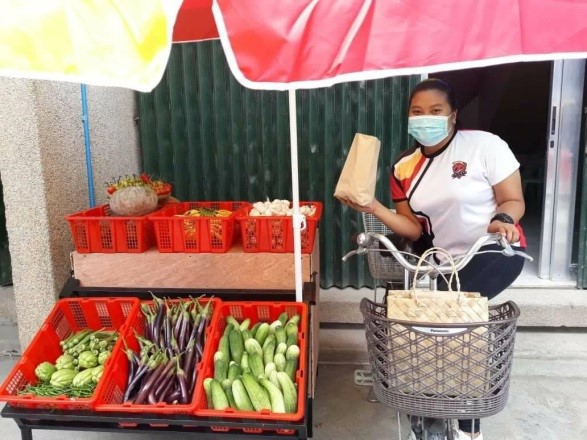 |
| ↑ Binhibuhay project | ↑ YMCA volunteer helps sell the produce |
Enhanced community relations
The program gave many opportunities to galvanize friendships and form new networks. The seeds came as key to people foreign to the cause of the Y and has now became partners and friends of the YMCA of Davao.
YMCA BinhiBuhay is able to establish a network of customers; and to improve the system to maximize the impact of the program.
YMCA Binhi Buhay is more than just a planting and greening program. It is not just an emergency response to what the times has brought us. It highlights the provision of God through the generosity of people. Once again the noble and sterling ways of the YMCA proved without a doubt its potency to reach and serve communities. Seeing how people come together, the future in the new normal like tilling the garden gives us hope, growth and the promise of fruition. The program facilitated the best response from our volunteers, partners and communities that despite these arid times there is a healthy ground for holistic cultivation of humanity and stewardship.
- YMCA of Davao, Philippines
Read more...
Page 37 of 54

 Who we are
Who we are


